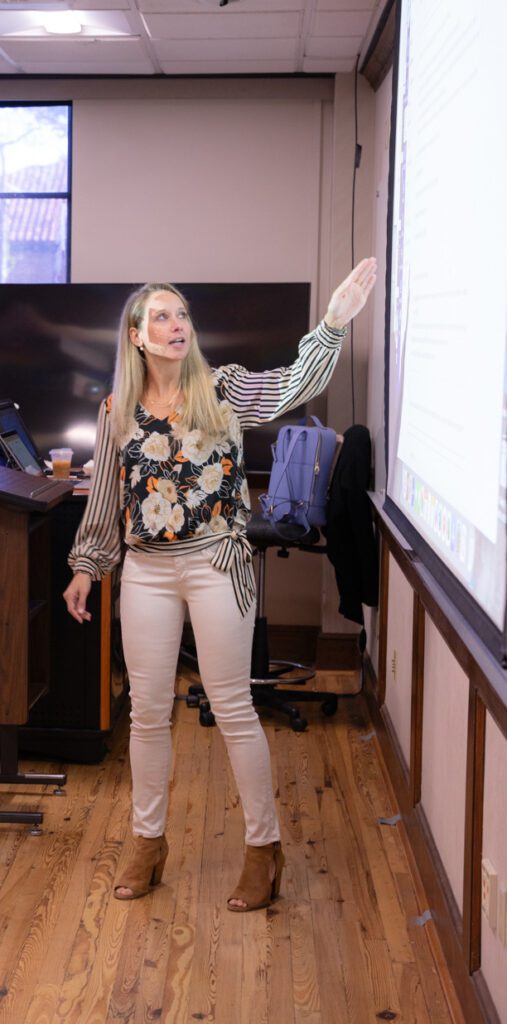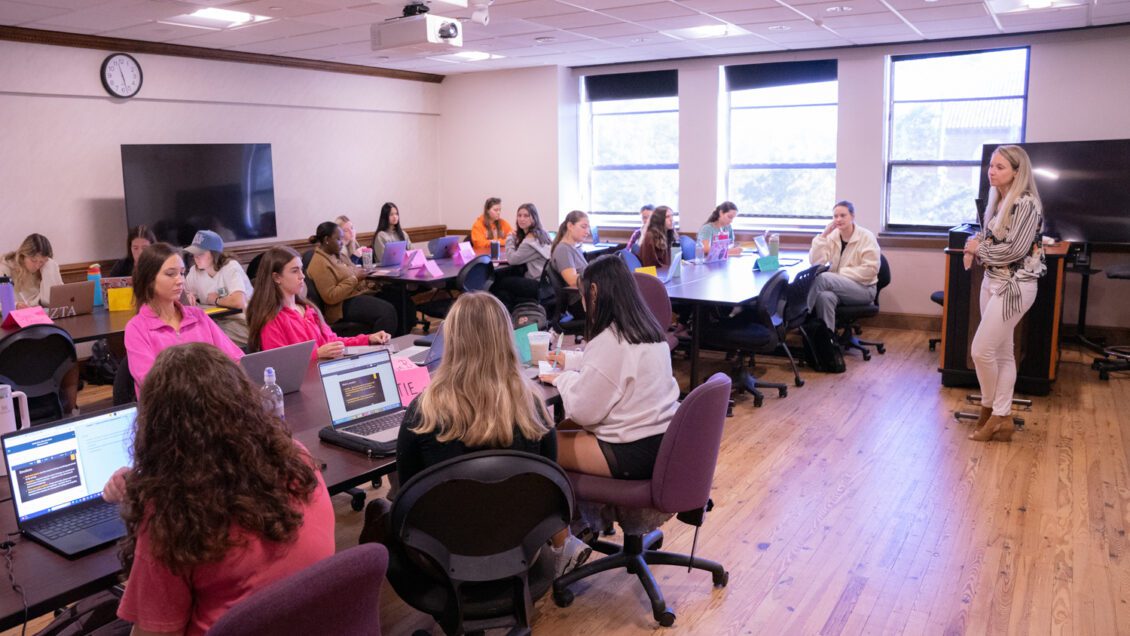The Clemson University College of Education will introduce a new graduate degree in Fall 2025 aimed at equipping educators – both in the classroom and across industries – with the theoretical, technological and practical knowledge to excel in designing training materials or assessing learning, especially in the digital space. College faculty designed the Master of Education in learning sciences as a fully online degree program that students can complete in five semesters.
According to Amanda Bennett, lecturer in the Department of Education and Human Development and coordinator for the learning sciences program, the degree program is open to learners in all discipline areas who have already earned a bachelor’s degree and are looking to further their expertise as educational leaders in fields such as health care, the military, non-profit organizations or in academia.
“On-the-job training and employee education can be a chore for employees that gains them no knowledge, or it can be effective and ensure that what an employee needs to know sticks,” Bennett said. “Instructional designers with an advanced degree in learning sciences can make that instruction effective, which has a ripple effect across entire organizations. It also doesn’t hurt that demand for these roles only increases.”
According to the Bureau of Labor Statistics, the demand for instructional designers is rising with an 11% projected growth from 2020 to 2030, faster than the average for all occupations. Additionally, demand for instructional design in the online arena is poised only to increase. Global Market Insights estimates that the global e-learning market will reach $375 billion by 2026, reflecting an increasing need for skilled professionals who can create effective online learning solutions.

Bennett said the program expects applicants from K-12 education or those from higher education who seek to improve in-person or online offerings. However, College faculty and staff designed the degree to broadly encompass all industries. The military and the health care industry often turn to train-the-trainer models for employee education. Bennett sees a degree in learning sciences as a way of supercharging those trainers who may not have the knowledge base in education to design training.
“We are excited to have students pair their expertise in nursing, for example, with expertise in education to become an indispensable leader in a hospital who can ‘level up’ every nurse and health care employee around them,” Bennett said. “Expand that example to just about any industry, and it’s easy to see how experts equipped with teaching tools can be a powerful force for organizations.”
Cohorts should learn just as much from one another as they do from instructors, which has become a key to the success of graduate education in the College and led to top online national rankings over the last seven years. Bennett said diverse cohorts of students only strengthen the program, as students can learn about other industries and learning science applications in different fields as cohorts progress.
Coursework will touch on effective online teaching, learning theories, critically analyzing and conducting research, and designing, developing and implementing effective instructional materials and digital learning environments. According to C.C. Bates, associate dean for research and graduate studies, faculty and staff developed the program with broad applications in mind as the College of Education continues to re-envision the everchanging educational landscape.
Much like the College’s master’s degree in human resource development and its undergraduate degree in human capital education and development, the learning sciences degree takes educational concepts proven in classrooms and broadens their application to just about any field or workplace.
“Education is not confined to school systems; it permeates every field and industry,” Bates said. “The new learning sciences program, like many of our programs, embraces the idea that learning doesn’t stop once we enter the workforce. Leveraging educational expertise in the workplace is a resource that increasingly successful organizations and industries are embracing.”
The application deadline for the new master’s degree in learning sciences is July 1. For more information, contact Amanda Bennett (aebenne@clemson.edu) or coegrad@clemson.edu.
Get in touch and we will connect you with the author or another expert.
Or email us at news@clemson.edu

